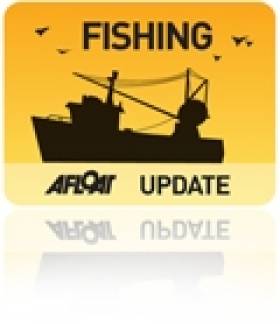Displaying items by tag: European Council of Fisheries Ministers
Coveney Seeks Agreement From EU Marine Ministers On Discards Ban
#Fishing - Minister for the Marine Simon Coveney will be seeking agreement from his European colleagues at next week’s Fisheries Council on how when and how introduce an effective discards ban in the context of the reform of the Common Fisheries Policy (CFP).
At the June 2012 Fisheries Council, ministers did not reach agreement on how a discard ban would be implemented or when such a ban would be introduced.
The challenge for Minister Coveney as president of the European Council of Fisheries Ministers is to secure wide agreement at council on an ambitious early date for the introduction of a ban in all waters across the EU from the Baltic & North Sea to the North Eastern Atlantic, the Mediteranean and the Black Sea.
Ministers will need to agree the practical measures that will ensure that the ban is capable of being effectively implemented in all these areas.
In a review of global discarding, the Food and Agriculture Organisation of the United Nations (FAO) noted that the North East Atlantic has the highest discard level in the world, estimated at 1.3 million tonnes, the majority attributed to EU fisheries. The EU Commission itself estimates that 23% of all fish caught by EU vessels are discarded.
Discarding occurs in almost every fishery, in every area and across most fleets in the European Union. Every member state operating fishing operations on the open sea has a discard problem. Many member states have significant levels of discards in certain fisheries, and for varying reasons.
The policy to stop discarding of fish and to change behaviour of fishermen so that unwanted by-catches and juvenile fish are no longer caught must be seen as an integral part of fisheries management in general and serve the overarching goals of moving to long-term management based on ecosystem considerations and reaching maximum sustainable yield by 2015, where possible, and by 2020 at the latest for all stocks.
The three European institutions, all member states and importantly the Irish presidency are fully supportive and committed to the introduction of a discard ban.
A very important element of delivering the overall objective will be the introduction across all fisheries of smarter and more selective fishing gear, strengthened selectivity measures and changed fishing practices that avoid to the greatest extent possible unwanted catches particularly those of juvenile fish.
To assist the debate on discards and facilitate actions to resolve the problem, Ireland published a 'Discards Atlas' detailing the full extent of discards by the Irish whitefish fleet. It is critically important that other member states do likewise to support the introduction of the new policy and inform measures that will be needed to ensure that a new policy is fully implemented by EU fishing fleets.
Minister Coveney commented: "I am and continue to be a strong advocate for a policy which eliminates the wasteful practice of discards.”
On the prospects for council, he said: “I am under no illusion of the challenges the effective implementation of a discards policy pose for European fishermen and for the member states of the EU, and will work intensively with my European ministerial colleagues over the course of the February Council to deliver a policy with an ambitious timetable for implementation that will end the discarding of fish and support the rebuilding of fish stocks and the future of coastal communities depending on fishing.
"It is my firm belief that the success or failure of the reformed CFP will be judged to a large extent on the effectiveness of whatever discard ban is introduced and that there is widespread support for the ban from the fishing nations of the EU and their fishermen.
"It is imperative that European fisheries ministers collectively take this progressive but challenging decision now and co-operate in agreeing appropriate and effective measures to eliminate discards with ambitious timelines."
Agreement in the council will free up the Irish presidency, on behalf of the council, to begin negotiations with the European Parliament and Commission to reach political agreement on a new reformed Common Fisheries Policy by June.






























































